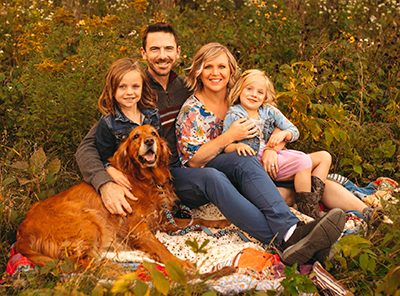Talk about having responsibilities.
Dr. Tracy Hadenfeldt is a veterinarian and is a co-owner of St. Paul Veterinary Clinic in St. Paul, Nebraska.
She is a mother. Hadenfeldt has two children “who keep us both very busy and entertained.”
And is she is also a farmer. She has about 35 cows on a farm her dad and brother operate.
“Outside of my family, I’m a veterinarian first because that is my true job,” Hadenfeldt said. “I do help my dad and brother on the family farm where I own about 10% of the herd. That keeps me plenty busy between them, my kids and my job.
“I am very blessed that my brother and dad take care of my cows when I’m working. But they also get a pretty good deal with having a vet on call 24/7 for anything they would need.”
Every so often there are times when Hadenfeldt puts on her famer hat first.
“The only time that probably occurs is when there is bad weather, especially if the storm hits when we are calving,” she said. “Then I’m at the farm first thing, helping make sure bunks are scooped, calves are OK and in a warm dry spot, and just to make sure my dad and brother are caught up.”
The St. Paul Veterinary Clinic is a mixed animal practice, although Hadenfeldt says she spends about 70% of her time doing large animal work. The clinic is mostly cow/calf with some feedlot business as well.
Hadenfeldt returned home almost five years ago after working at a mixed animal practice in Wisconsin, back to Iowa as a relief veterinarian, and then at another mixed animal clinic in St. Libory, Nebraska.
Despite her varied level of veterinary experiences, Hadenfeldt is happy to be at the St. Paul Veterinary Clinic.
“I prefer the large animal side of veterinary medicine just due to the fact it is what I’m used to and familiar with,” Hadenfeldt said. “I do like to do embryo transfer work, but unfortunately there are not too many people where I live that do it.”
Hadenfeldt says owning her own cattle helps connect with her clients. She believes that ownership helps her understand more of what her clients are talking about in addition to understanding the economics of raising cattle.
“With some issues that arise, I have mostly like seen it with our herd, so I can give them advice from the experience of what works and why it did or didn’t,” she said.



